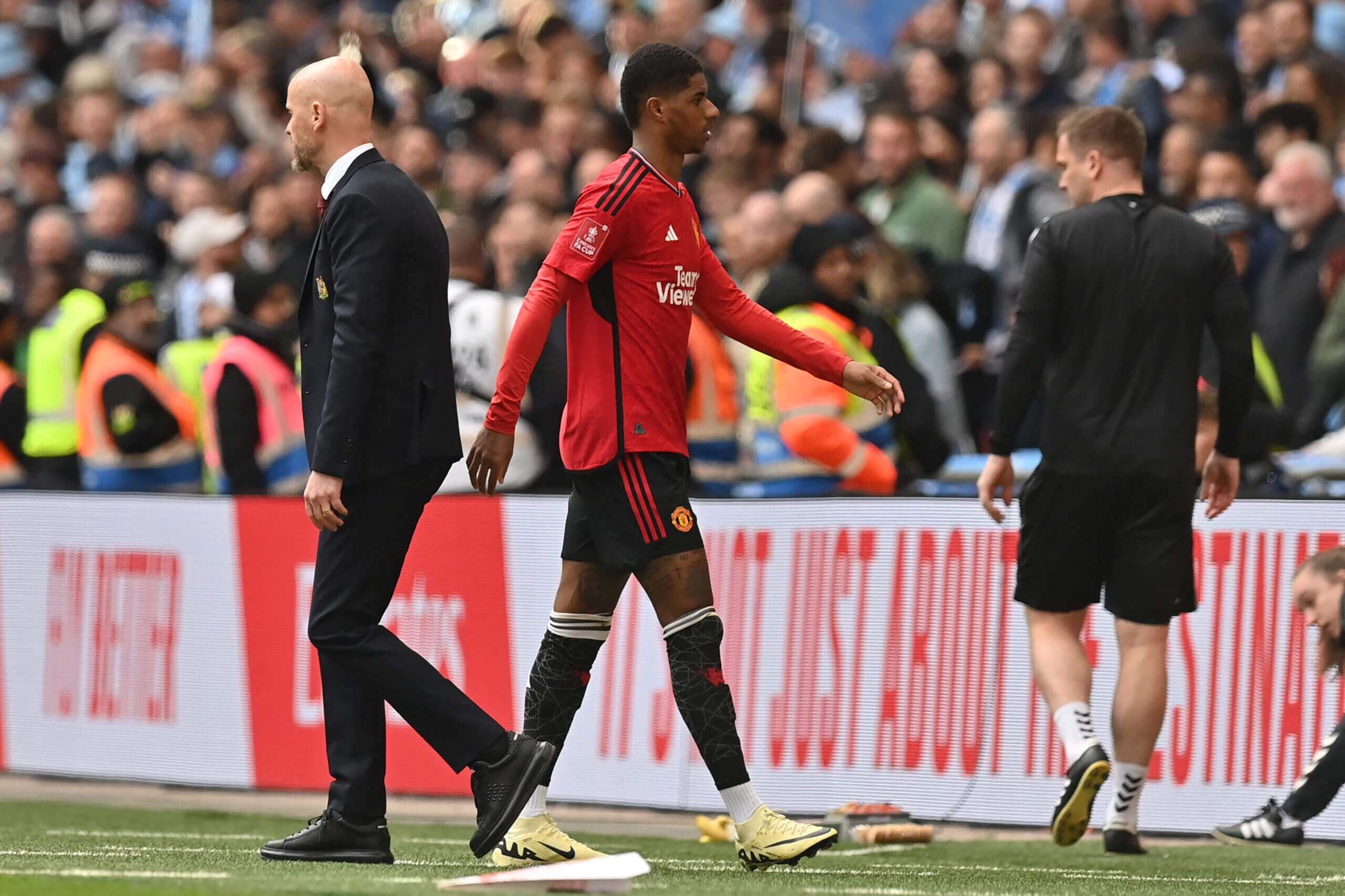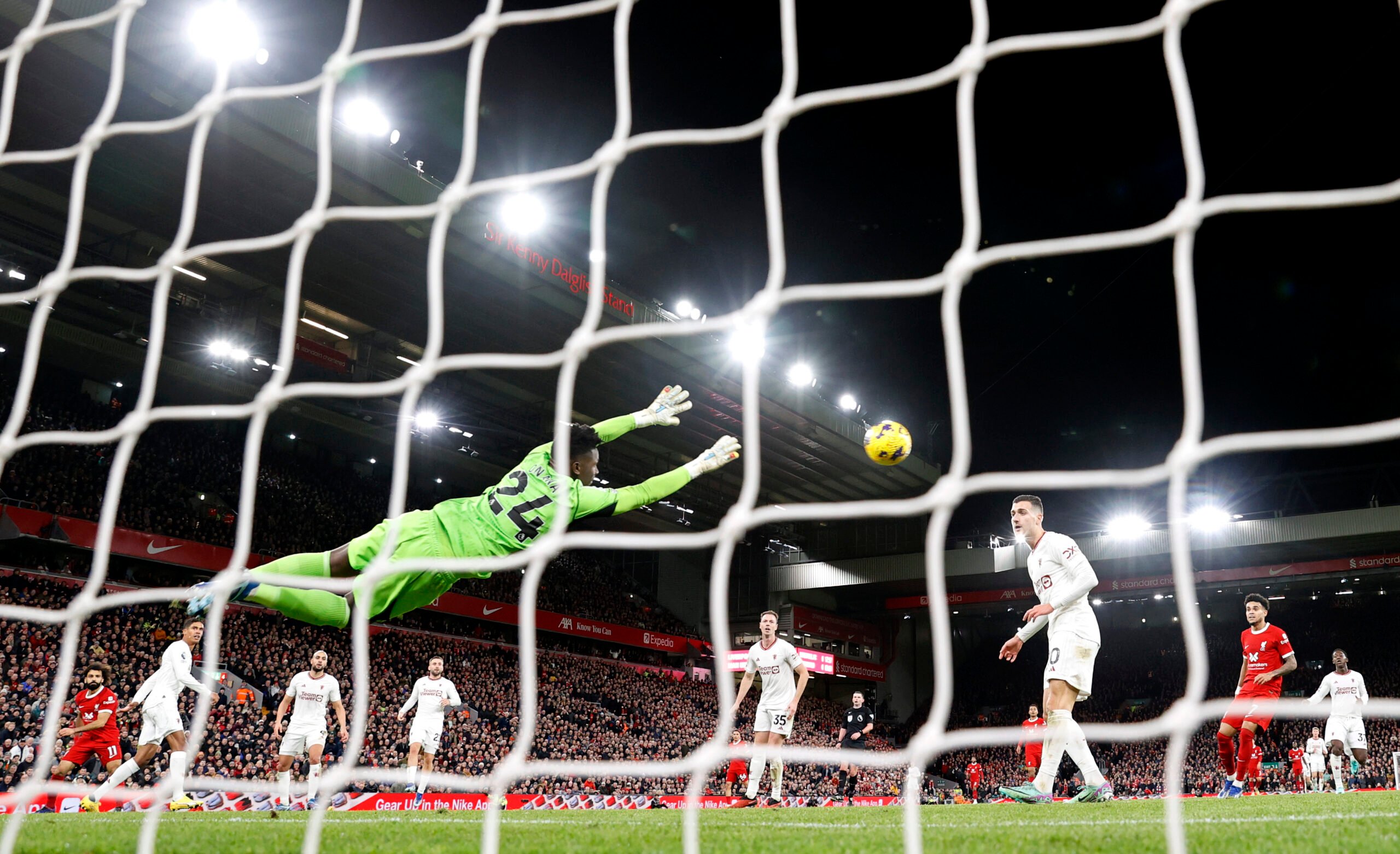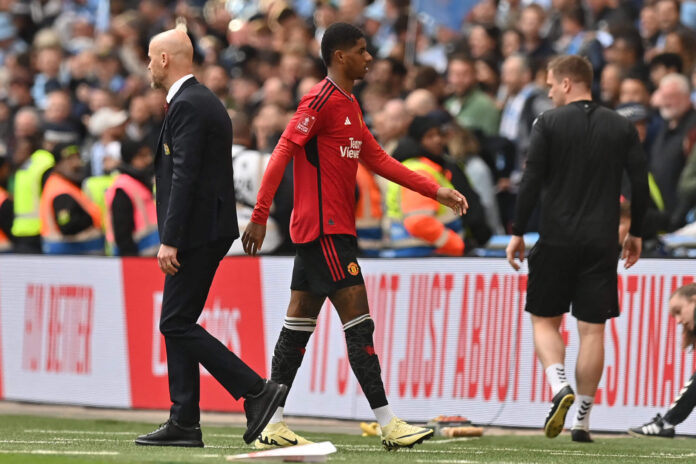You may have watched Manchester United reach their second FA Cup final in as many seasons by the leather of Haji Wright’s left boot and considered it a fortunate escape that their collapse from 3-0 up against Championship opposition did not deserve.
Erik ten Hag did not think United got lucky, though. If anything, he was at his most impassioned in his post-match press conference when discussing his side’s misfortune, specifically for Coventry City’s stoppage-time penalty, arguing it was an “absolutely crazy” decision to award a handball against Aaron Wan-Bissaka.
Advertisement
Ten Hag took much the same line of argument before United’s last Premier League outing against Bournemouth. While accepting that “like a minister” he will bear ultimate responsibility for results, he could not help but bemoan his side’s bad luck over the past eight months.
“It’s huge. A lot went against us this season,” he said. And though United’s misfortune is not limited to refereeing calls in Ten Hag’s mind, that was where he trained his focus.
“You see all the penalties we conceded last week (against Chelsea and Liverpool) could also have been going in another way. You think over the course of a season sometimes you will get one, sometimes you will concede one. This season it feels like we only concede.”
United have been awarded five penalties this season and have conceded 11, with four given away in the opening four games of the Champions League group stage. While most of those in Europe were not especially contentious, many of the six conceded in the Premier League have sparked debate.
Some have been soft — Rasmus Hojlund and Casemiro’s concessions against Manchester City and Wolverhampton Wanderers in particular — and others more debatable. None, it should be noted, have resulted in the officials responsible being stood down for the subsequent round of fixtures, as happened after Wolves were denied a penalty at Old Trafford on the opening weekend of the season.
All those decisions, however, are a matter of opinion. Outside of offside, most refereeing calls are subjective by nature and, as the era of VAR has taught us, there are different definitions of what constitutes a clear and obvious mistake.
Ten Hag has more substantive grounds for complaint on arguably the biggest single reason for United’s struggles: player injuries and enforced absences. The revolving door of United’s treatment room has seen all but four senior squad members — Bruno Fernandes, Andre Onana, Diogo Dalot and Alejandro Garnacho — pass through it at some point this year.
Advertisement
The 2-2 draw at Bournemouth was the first time United have named an unchanged line-up since the opening two games of a season ravaged by injury. According to data from transfermarkt, United’s squad have collectively spent 1,710 days sidelined since the start of the season.
Ten Hag said last week he has not been able to pick his “favourite” line-up since the 2-1 victory over Manchester City at Old Trafford in January of last year. Just as United’s injuries have appeared to abate, new concerns have cropped up.
Fresh problems for Willy Kambwala, Mason Mount and Sofyan Amrabat meant United’s absentee list swelled into double figures again ahead of the semi-final, while Marcus Rashford and Scott McTominay both appeared to be carrying issues when substituted at Wembley.

Marcus Rashford walks off after being injured at Wembley (Glyn Kirk/AFP via Getty Images)
The absence of either of his first-choice left-backs for the majority of the season has, Ten Hag feels, had a material effect on United’s ability to play the way he wants. Lisandro Martinez’s unavailability has deprived him of a player who had a transformative effect during his first year in Manchester.
But is it all down to luck or could certain things be done differently? United have set to work restructuring the medical department since the appointment of head of sports medicine Gary O’Driscoll. Sources, who asked to remain anonymous to protect their relationships, believe there have been noticeable improvements since the former Arsenal club doctor’s arrival and that restructuring continues apace.
Ten Hag’s training methods have also come under scrutiny and can be intense, particularly for those not involved in matches, who are put through rigorous sessions the day after games to maintain a consistent level of physical load across the squad. The fast, direct and often chaotic style of play that has been adopted this season also has to be considered as part of that equation.
Everybody knows by now that United face a lot of shots on goal — 574 in total in the Premier League this season. No top-flight team has faced as many on a per-game basis, but in the context of recent history, that figure only becomes all the more remarkable.
Since 2016-17, eight of the 15 top-flight sides to have faced more shots than United have been relegated. None have finished higher than 15th. At the current rate, United will surpass all of those 15 sides and yet even in the absolute worst-case scenario, they cannot finish any lower than 14th.
Ten Hag has defended United’s apparent willingness to give up shots by arguing they are predominantly low-quality chances and he has a point. The average shot United have faced in the league this season has had a 10 per cent chance of resulting in a goal.

Andre Onana has been busy this season (Clive Brunskill/Getty Images)
Brentford and Newcastle have the worst record in that regard, with the average shot having a 13 per cent chance of being scored. The difference between a 13 per cent and 10 per cent chance is small but significant. A marginal gain, if you like.
But if you concede at least 20 shots a game, as United have regularly been doing of late, and one in every 10 goes in, you’ll need to score three to win. The eighth-worst attack in the league, with only 47 goals in 32 league games, cannot count on that.
Advertisement
United’s 47 goals is level with Luton Town and in line with expected data, too. Defensively, Ten Hag’s side have conceded 48 goals — one of the Premier League’s better records — but from an expected total of 59.8.
Take one away from the other and United’s expected goal difference is -12.2, the fifth-worst in the league. Suddenly, that actual goal difference of -1 does not look so bad after all.
But nothing can change perceptions and narratives around a side like a favourable run of fixtures, in the short term at least, and United now face the Premier League’s bottom two at Old Trafford in the space of four days.
It should not need saying, but United are a better side than both Sheffield United and Burnley by any comprehensive measure. They should not need to get lucky to prove it.
(Top photo: Glyn Kirk/AFP via Getty Images)

